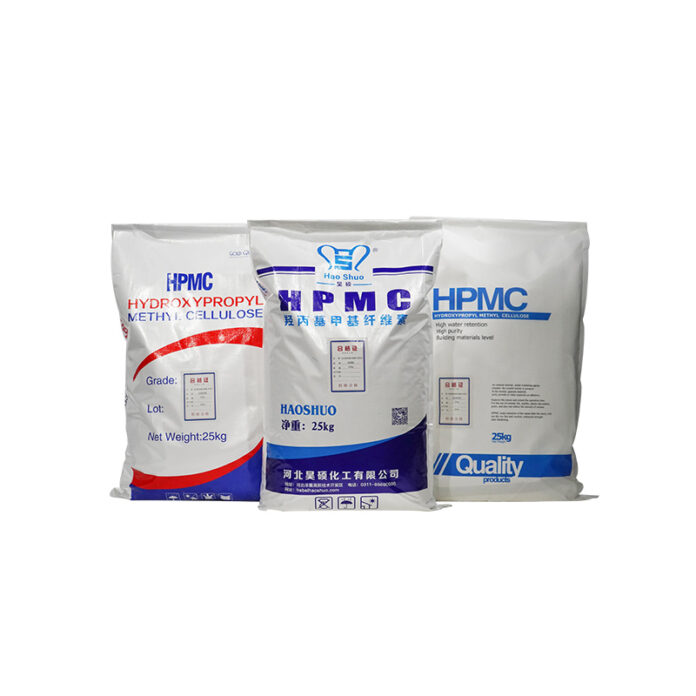In today’s competitive industrial ecosystem, raw material sourcing is no longer just a cost-based decision — it’s a strategic one. One such essential material used across numerous industries is Hydroxypropyl Methylcellulose (HPMC). Whether you’re in construction, pharmaceuticals, food, or cosmetics, the performance of your product often hinges on the quality and consistency of the HPMC you use.
With demand increasing worldwide, selecting a reputable hpmc supplier has become more crucial than ever. A reliable supplier doesn’t just deliver material; they contribute directly to product innovation, performance, and end-user satisfaction.
What Is HPMC and Why Is It Important?
Hydroxypropyl Methylcellulose (HPMC) is a non-ionic cellulose ether derived from natural cellulose. Its multifunctional properties — such as thickening, emulsifying, film-forming, binding, and water retention — make it invaluable in a range of industrial and consumer applications.
Common Uses of HPMC
- Construction: Used in tile adhesives, wall putty, cement-based plasters for water retention and workability.
- Pharmaceuticals: Acts as a binder, film-coating agent, and sustained-release component.
- Food Industry: Utilized as a thickener and stabilizer, and a vegetarian alternative to gelatin.
- Personal Care: Adds viscosity, spreadability, and texture in lotions, shampoos, and creams.
As each application requires precise performance characteristics, choosing the right supplier is essential to get HPMC with the exact specifications your processes demand.
Key Benefits of Partnering with a Trusted HPMC Supplier
1. Product Consistency Across Batches
Consistency is the backbone of manufacturing. An established supplier ensures that viscosity, particle size, moisture content, and purity levels remain stable from batch to batch — avoiding product failure or customer complaints.
2. Access to Tailored Grades
Industries vary, and so do HPMC requirements. A good supplier can provide specific grades tailored to industry use — high-viscosity types for construction, pharmaceutical-grade purity for medications, or food-safe varieties with E-code approvals.
3. Regulatory Compliance and Certifications
Trusted suppliers provide products that comply with global standards like USP, BP, EP, ISO, or FDA, depending on the application. This ensures your products meet international safety and quality requirements.
4. Efficient Logistics and Delivery
Timely delivery is essential for continuous production. A dependable supplier will have robust supply chain systems, strategic warehouse locations, and reliable shipping methods to avoid delays and production halts.
5. Technical Support and Customer Guidance
When working with complex formulations, technical assistance can make a huge difference. Leading suppliers offer support teams to help optimize usage, troubleshoot performance issues, and recommend the right grade for your product.
Industries That Depend on High-Quality HPMC
Construction and Building Materials
HPMC enhances the performance of dry-mix mortar products. It improves adhesion, workability, open time, and water retention in tile adhesives, gypsum plasters, and self-leveling compounds. The construction industry is among the largest consumers of HPMC globally.
Pharmaceutical Manufacturing
In pharmaceutical formulations, HPMC is used in oral solid dosage forms as a film-forming agent, thickener, and controlled-release polymer. Only pharma-grade HPMC from certified suppliers can meet the stringent purity and safety requirements for human consumption.
Food & Beverage Sector
Food-grade HPMC acts as a stabilizer, thickener, and emulsifier in many processed foods, particularly in vegan and vegetarian alternatives. It is also used in coatings for bakery goods and instant noodles.
Cosmetics and Skincare
In personal care products, HPMC ensures smooth application, good spreadability, and long shelf life. It’s a preferred ingredient in gels, creams, lotions, and shampoos because it is non-toxic, skin-safe, and compatible with other ingredients.
Criteria to Consider When Choosing an HPMC Supplier
Not all suppliers are created equal. Here’s what to look for:
- Quality Control: ISO-certified manufacturing, strict QC procedures, and full traceability.
- Custom Solutions: Ability to modify or adjust formulations as per specific requirements.
- Technical Documentation: Availability of COA, MSDS, TDS, and compliance certificates.
- Global Reach: International experience in export logistics and documentation.
- Reputation: Positive client feedback, market credibility, and established brand presence.
These elements ensure long-term stability and scalability in your supply chain.
Common Pitfalls to Avoid
Choosing an HPMC supplier based solely on price can lead to several issues:
- Inconsistent quality or adulterated products.
- Non-compliance with industry standards.
- Delivery delays and poor communication.
- Lack of technical support when needed.
Short-term savings can turn into long-term losses if the supplier cannot meet performance expectations or product requirements.
How to Transition to a New Supplier
Switching suppliers involves due diligence. Here’s a simple process:
- Define Your Requirements: List desired specifications — viscosity, particle size, moisture content, etc.
- Request Samples: Always test small batches in your formulation before making a bulk order.
- Check Certifications: Confirm product certifications and manufacturing practices.
- Evaluate Service: Judge the responsiveness and expertise of their technical team.
- Negotiate Smartly: Ensure terms support long-term growth and flexibility in supply.
A thoughtful supplier switch can result in better performance and lower production risks.
The Future of HPMC: Innovation and Sustainability
As industries evolve, so does the demand for sustainable, high-performance polymers. Top-tier HPMC suppliers are investing in:
- Eco-friendly sourcing of raw cellulose.
- Energy-efficient production methods.
- Biodegradable alternatives and enhanced formulations.
- Research and development for novel applications in food tech, bio-pharma, and green building.
Collaborating with an innovative supplier can put your business ahead of the curve and strengthen your product’s sustainability profile.
Final Thoughts
Your choice of HPMC supplier is not just a procurement decision — it’s a core part of your production strategy. With growing competition and rising customer expectations, the right supplier ensures not only raw material supply but also product excellence, customer satisfaction, and compliance with global standards.
Before committing, make sure your supplier can deliver on quality, consistency, documentation, and innovation — because your brand deserves nothing less than excellence at every level of production.

